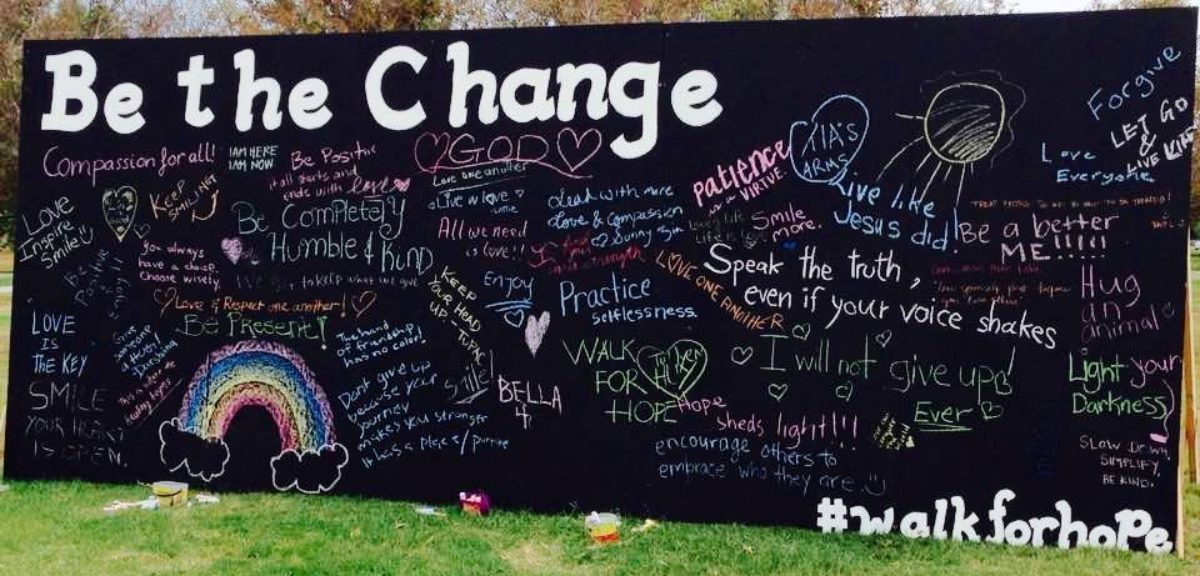Some Change
by Karishma Huda
“Some change, please.â€
She extended a shaking hand holding a flimsy coffee cup. It was a Friday night. I was having a drink with girlfriends at a Soho pub, friends I hadn’t seen in ages. I was caught off guard.
“Sorry love,†my friend responded, with a shrug of the shoulders and a face riddled with regret.
“Sorry…†I followed suit, and imitated her look of penance. If I look apologetic, it’ll all be okay.
But she had one upped me on powerful looks. The woman shook her head and stared directly into my eyes with a piercing gaze – a gaze of a mother’s disappointment, a gaze of surrender and acceptance of the apathy that she was drowning in. As we all stood cozy under the heat lamps with our pints and glasses of wine, as she walked off into the frigid night air, in search of another group of disinterested pub goers – with the hopes that she might find one, just one, with a bloody conscience.
The Koran compares a person with no spirituality to an empty shell. The Koran speaks of ‘the awful void’ experienced by the Prophet (PBUH) when ‘the curtain closed.’ I stood there contemplating that sentiment, and embracing the emptiness I felt as I walked after her with a hand full of change, but she was already gone. Not sure of why I felt so forlorn, as the scene that just occurred happens to every Londoner at least twice a day, everyday. But it was different, because this time, I noticed.
My religious teachings have told me that being charitable is inextricably linked with being spiritual. As lame as the analogy might be, I think of the ultimate goal of being physically fit – when we Exercise, we are naturally motivated to eat healthy – the result is a sound body and sound mind. The same applies to the goal of being spiritually aware – perhaps when we reflect, meditate, pray, take time to listen to a deeper inner voice that so often gets drowned out with the hum drum of daily life, we become more perceptive. We can see and hear the opportunities around us everyday to be good universal citizens, to fulfill our duties and bridge (ever so slightly) that massive gap that exists between the haves and have- nots.
That woman with the flimsy cup was an opportunity – one that I had blatantly ignored, but in the pursuit of being more aware, one that I at least heeded. Previously, I had easily justified such missed opportunities, as many of us do. As an international development professional, I’ve ironically become more cynical about the solutions to poverty with the passing of time. As my professors and colleagues would reiterate, “if you give someone a hand out on the street, you’re not dealing with the structural causes of their poverty, and you’re reinforcing their supplicating behaviour rather than empowering them to make a change.†That development babble appeases the conscience just enough to walk away – if you don’t know how to contribute to that kind of change, its easier to do nothing. And that’s the bleeding heart, ‘compassionate’ perspective – no better than the right wing tycoon that walks past that same woman and thinks that poverty is self-inflicted. “Be a productive member of society and earn a bloody living. †In the end, he too, walks away and does nothing.
The issue, in the end, for most of us, is mistrust. How do we know that if we stick a 50p coin in that cup, she won’t use it for booze or drugs? As a microfinance practitioner, I preach that the poor are perfect money managers – they do not need to be patronized and told what to do with their dollars and cents. Yet on this Friday night, I took a paternalistic stance and reinforced the unequal power relationship between myself and this individual. I didn’t say, “its freakin 50p – its no skin off my back, and you may use it to buy food, a hot drink, stick it in your coat pocket to spend tomorrow (believe it or not, poor people do save). Who knows. It’s your choice. Exercise your freedom.†Rather than redistributing a miniscule amount of wealth, I exploited my powerful stance and my ability to say “no.†I said no because I could, because everyone else was, because I knew that I would not lose this tug of war. I would not be the one to walk on humiliated, dejected, powerless.
It’s not just 50 p, it’s not just a basic act of charity. It’s a moral stance. I’ve stood here on my soap box – knowing well that while I have the luxury to reflect on a mistake, nothing changes unless I act upon the reflection. As we justify inaction, someone out there is tallying up the missed chances. Sooner or later, that inner voice will speak – we will all inevitably notice the void that comes from the curtain closing, that feeling of being an empty shell.
It won’t change the world – but it’ll make a difference to one person in one given moment. And those moments add up. It’s worth the 50 p.
